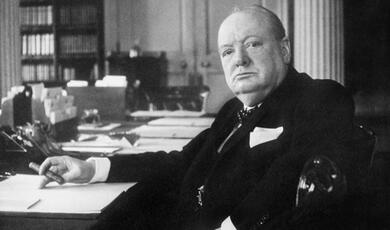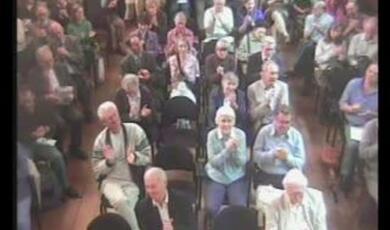Video Cicero: Modern Orators on Television and Radio
Share
- Details
- Transcript
- Audio
- Downloads
- Extra Reading
Our society now has the media for the complete public speaker, the contemporary rhetorician, the modern Cicero on video who tries to speak for us all. If First Nations orators are the source of the social, cultural, political and religious guidelines for their societies, and are respected if not honoured for this skill, then what has happened to our own politicians? As radio and television have opened up, political communication has become more and more a combined verbal and dramatic art, what Cicero would have called ‘rhetoric’.
There is a set of unspoken but widely understood rules of thumb that have habitually been used to assess the value or otherwise of political performance in the media, and that these seem to be contradicted in complex ways by the increasingly diverse make-up of people with political power. Because contemporary political rhetoric must be all things to all peoples, it tends to gut the issues of any real debate, to offer to speak for us rather than to us, hence weakening our commitment to political action either by ourselves or by those acting on our behalf.
Download Transcript
This event was on Thu, 11 Mar 1999
Support Gresham
Gresham College has offered an outstanding education to the public free of charge for over 400 years. Today, Gresham plays an important role in fostering a love of learning and a greater understanding of ourselves and the world around us. Your donation will help to widen our reach and to broaden our audience, allowing more people to benefit from a high-quality education from some of the brightest minds.


 Login
Login







